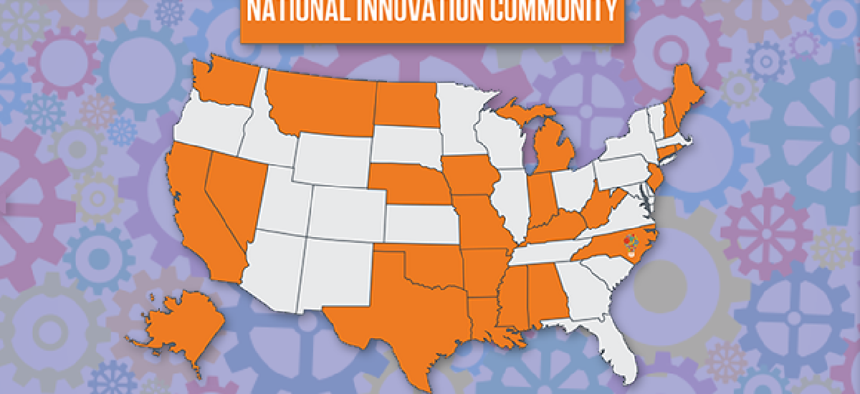iCenter leads multistate tech-testing lab


Connecting state and local government leaders
North Carolina’s iCenter operates a laboratory where agencies, educational institutions, industry and citizens can perform technical evaluations, prototype testing and proofs-of-concept.
While many states and federal agencies have innovation offices to help transform the way government delivers services, North Carolina’s Innovation Center (iCenter) operates a working laboratory where state agencies, educational institutions, private industry and citizens can perform technical evaluations, conference room pilots, prototype testing and proofs-of-concept.
The “try before you buy” working lab has tested more than $6 million worth of technology at no cost to the state, allowing agencies to make better-informed decisions about how to invest their technology dollars. The iCenter has also led to savings of approximately $1.4 million a year in storage costs and $7 million in renegotiated IT contracts.
Launched in October 2013, iCenter is now collaborating with states nationwide, North Carolina Gov. Pat McCrory recently announced. About 25 states are part of the effort and they will meet monthly to share best practices and challenges, said Erik Ross, the state’s chief digital officer and director of iCenter.
“We look forward to sharing our experiences and learning from other states as we all work to improve the service we offer our citizens,” McCrory said in a statement.
Before iCenter began reaching out to other states, it spent about a year perfecting its operations, including how to do testing, how to work with vendors and university students and how to engage with citizens.
The center was borne from state Chief Information Officer Chris Estes’ assessment of the state’s existing technology and a need to update much of it. A state auditor’s report that 84 projects prior to 2013 were 389 days behind schedule and $356 million over budget also spurred iCenter’s creation.
The center works like this: CIOs from North Carolina’s cabinet-level agencies meet weekly to discuss pain points and areas of opportunity – operating essentially as a board for the center. They also identify and prioritize areas they want to leapfrog old technology to get up-to-date, after which the center helps coordinate the appropriate state, vendor and university partners, Ross said.
Among the technologies tested are social media listening tools, interactive kiosks, Office 365, mobile field applications and computing devices (smartphones, tablets, thin and zero clients and laptop computers), beacon technology and virtualized desktops.
“One theory that that group came up with is around cloud and virtual technology, so we did a pilot with hosted virtual desktop and virtual applications,” Ross said.
“We worked with a number of vendor partners to put together a pilot that lasted roughly six months. Through that process we learned a lot about what the requirements are, we learned a lot about our own technology, we learned a lot about how that technology would work internally and we also had a number of different agencies that were involved in that test.”
Part of the evaluation included analyses of what users would need and mapping the results to a virtual technology to see how a new technology could meet those needs. Advantages of virtual include the ability to access the desktop and applications on any device from anywhere as long as there’s an Internet connection.
“That’s a big focus for the governor as far as empowering the next-generation workforce as well as all of the cabinet agencies,” Ross said, which is why that evaluation was a top priority.
The duration of the tests ranges from a few weeks to a few months, depending on the technology. So far, iCenter has tested about 20 products and has four more in the queue, he said.
iCenter has no budget; partners cover evaluation costs, Ross added. Because the center is part of Estes’ office, most of what’s tested is for enterprise use, although it has studied a specific product for one or two agencies.
“The idea is that a particular test could be emulated and used across multiple agencies because we’re trying to gain efficiencies,” he said. “Most of the agencies, at least in North Carolina, have been operating as independent entities, so there’s a good bit of duplication of infrastructure and services. We’re trying to enable, by bringing all these folks together, a way to leverage the scale and skills we need to work together as a team.”
In the private sector, the innovation function is often integrated with the production process so there’s a market-forcing element, but in government it’s more about service and cost effectiveness, said Dan Chenok, executive director of the IBM Center for the Business of Government.
Public-sector innovation centers take many forms, according to A Guide for Making Innovation Offices Work, a recent report from the center.
Boston and Philadelphia’s New Urban Mechanics programs; Montgomery County, Md.’s Innovation Program; and the Health and Human Services Department’s IDEA Lab function like laboratories, for example, while others, such as Pennsylvania’s, act as a facilitator in which one person or group works with government departments.
Other models include adviser, technology build-out, liaison and sponsored organization.
“Any or all of those can add value to an agency because if you think about them all together, they are opening eyes to new ways of doing business,” Chenok said. They show states how to incorporate technological advances and then integrate those advances into the agency’s mission and operation,
“It can create new ways of providing more value to their constituents at lower costs,” Chenok said.
NEXT STORY: Windows 10: One experience on every device




